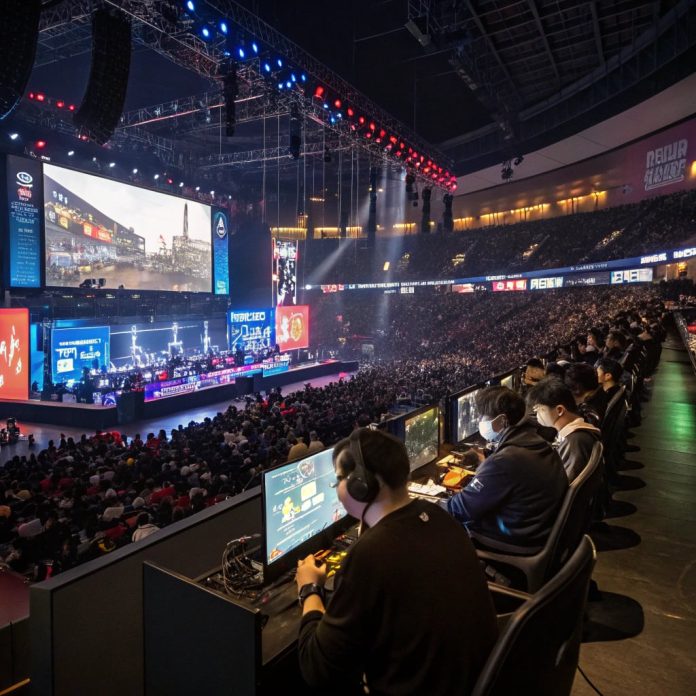South Korea’s gaming culture is a global phenomenon, blending cutting-edge technology, competitive spirit, and creative innovation to dominate the digital entertainment landscape. As a pioneer in esports and a hub for game development, South Korea has transformed gaming into a cultural and economic juggernaut, reflecting its technological prowess and societal passion. From packed stadiums to mobile gaming apps, this industry shapes lifestyles and influences global trends. This post explores five key facets of South Korea’s gaming culture, highlighting its rise, impact, and future. Dive into the vibrant world of South Korean gaming, where skill, creativity, and technology create a powerful digital legacy.
1. Esports Dominance: The Birthplace of Competitive Gaming
South Korea is the global epicenter of esports, with games like StarCraft and League of Legends shaping the industry. The 1998 release of StarCraft sparked a competitive gaming revolution, with professional leagues like StarCraft ProLeague drawing millions. By 2025, South Korea hosts over 20 major esports tournaments annually, with T1’s Faker, a League of Legends legend, commanding a fanbase rivaling K-pop stars. Seoul’s LoL Park, a state-of-the-art arena, hosts sold-out matches, generating $2 billion in revenue yearly. Esports reflects South Korea’s competitive ethos, blending discipline and strategy, and has elevated gamers to celebrity status, inspiring a generation to pursue digital excellence.
2. PC Bangs: The Heartbeat of Gaming Culture
PC bangs, South Korea’s iconic internet cafes, are cultural hubs where gamers socialize and compete. With over 20,000 PC bangs nationwide in 2025, these venues offer high-speed internet, cutting-edge PCs, and snacks, creating a communal gaming experience. Popular in cities like Seoul and Busan, they cater to students and professionals playing games like Overwatch or Valorant. A typical session costs 1,000 won ($0.75) per hour, making gaming accessible. PC bangs foster camaraderie and skill-building, with 2025 reports noting their role in scouting esports talent. These spaces embody South Korea’s blend of technology and community, driving its gaming obsession.
3. Game Development: Crafting Global Hits
South Korea’s game developers, such as NCsoft, Nexon, and Krafton, create titles that dominate global markets. Lineage and MapleStory pioneered the MMORPG genre, while Krafton’s PUBG: Battlegrounds revolutionized battle royale games, with over 1.3 billion downloads by 2025. Seoul’s Pangyo Techno Valley, a hub for tech startups, fosters innovation, with 2025 seeing new releases like DokeV, blending open-world adventure with vibrant visuals. These games reflect South Korea’s storytelling and technological expertise, often incorporating cultural elements like hanbok-inspired skins. The industry’s $20 billion revenue in 2025 underscores its economic impact, cementing South Korea’s role as a gaming powerhouse.
4. Mobile Gaming: A National Pastime
Mobile gaming has exploded in South Korea, with 70% of the population playing games on smartphones in 2025. Titles like Genshin Impact (co-developed with Korean input) and Cookie Run by Devsisters dominate app stores, generating millions in microtransactions. Commuters in Seoul’s subways are often seen playing quick matches, reflecting the accessibility of mobile platforms. The industry leverages South Korea’s 5G infrastructure, with 2025 innovations including cloud gaming services like Kakao Games. Mobile gaming’s rise reflects South Korea’s fast-paced lifestyle and tech-savvy culture, making it a leader in this rapidly growing sector.
5. Cultural Impact and Challenges: Beyond the Screen
South Korea’s gaming culture shapes fashion, music, and even education, with esports academies training future pros. In 2025, universities like Yonsei offer esports scholarships, while K-pop stars collaborate with games for soundtracks, boosting cross-industry synergy. However, challenges like gaming addiction prompt government regulations, with 2025 policies limiting playtime for minors. Public campaigns promote balanced gaming, addressing concerns about mental health. The industry’s global influence, seen in events like G-Star 2025 in Busan, draws international developers, reinforcing South Korea’s soft power. This cultural integration highlights gaming’s role in shaping modern South Korean identity while navigating societal concerns.
Conclusion: South Korea’s Gaming Legacy
South Korea’s gaming culture, from its esports dominance and PC bang hubs to innovative game development, mobile gaming boom, and cultural impact, is a testament to the nation’s technological and creative leadership. It transforms digital entertainment into a lifestyle, uniting communities and projecting South Korea’s influence worldwide. Recent 2025 milestones, like record esports revenues and new game launches, underscore its unstoppable momentum. Exploring this gaming world offers profound insights into South Korea’s blend of tradition, innovation, and passion, revealing a nation that thrives at the intersection of technology and culture. Whether you’re a gamer or a curious observer, South Korea’s gaming revolution is a powerful journey of skill, creativity, and global connection.
